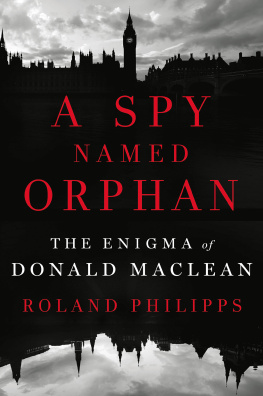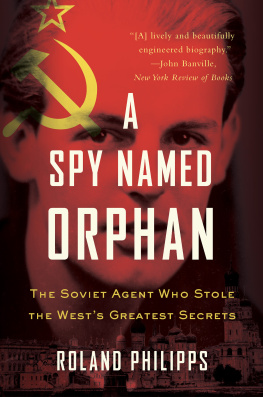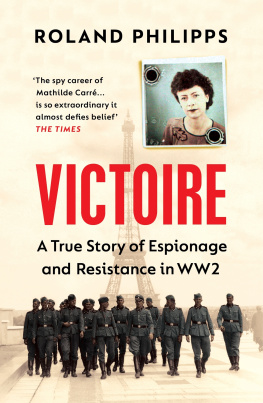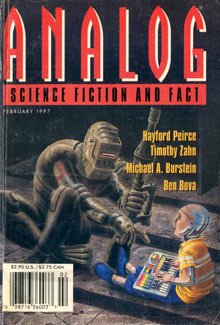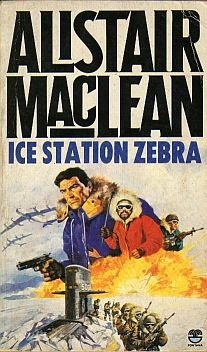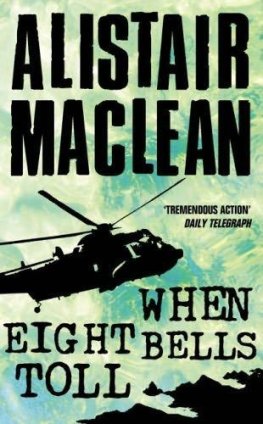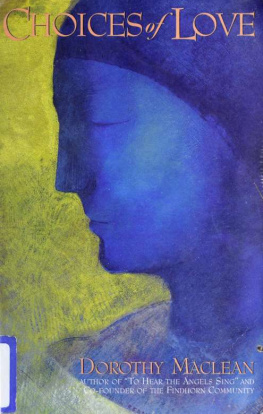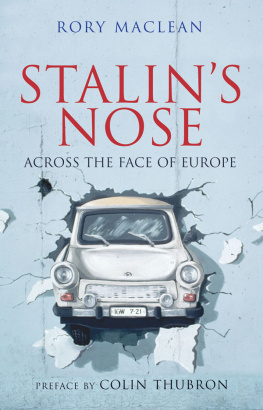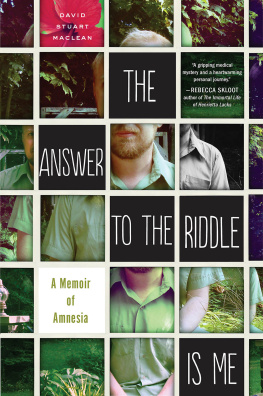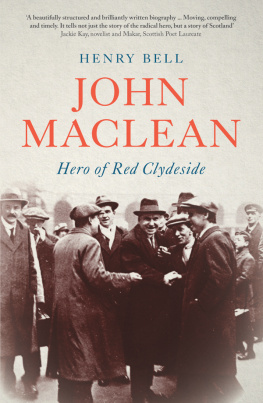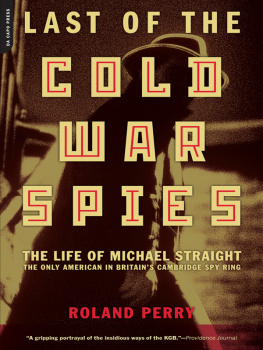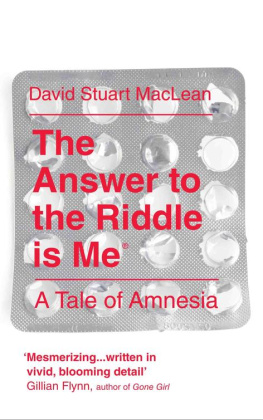
ROLAND PHILIPPS
A
SPY
NAMED
ORPHAN
THE ENIGMA OF DONALD MACLEAN

W. W. Norton & Company
Independent Publishers Since 1923
New York London
Copyright 2018 by Roland Philipps Ltd.
All rights reserved
First Edition
For information about permission to reproduce selections from this book, write to Permissions, W. W. Norton & Company, Inc., 500 Fifth Avenue, New York, NY 10110
For information about special discounts for bulk purchases, please contact W. W. Norton Special Sales at specialsales@wwnorton.com or 800-233-4830
Production manager: Anna Oler
JACKET DESIGN: TAL GORETSKY
JACKET PHOTOGRAPHS: (TOP) SIMON BRADFIELD /
ISTOCKPHOTO.COM; (BOTTOM) ARTEM DUNAEV / EYEEM / GETTY
IMAGES; (CLOUDS) ZORANKRSTIC / SHUTTERSTOCK
ISBN 978-0-393-60857-1
ISBN 978-0-393-60858-8 (e-book)
W. W. Norton & Company, Inc., 500 Fifth Avenue, New York, N.Y. 10110
www.wwnorton.com
W. W. Norton & Company Ltd., 15 Carlisle Street, London W1D 3BS
For Felicity
Donald Maclean awoke on 25 May 1951 at his house in the quiet Kent village of Tatsfield to a beautiful late-spring day, a welcome change in the weather. That Friday morning would be his last in England; it was his thirty-eighth birthday. He ate his breakfast of bacon and eggs with two cups of tea in his usual haste. The housekeeper and nanny to his sons Fergus and young Donald (known as Beany) entered the comfortable Victorian villa to see him rush upstairs to kiss his American wife Melinda goodbye. Remarkably, given the traumatic year they had just had, Melinda was now eight months pregnant with their third child. Donald came back downstairs, quickly watered the cyclamen that Melinda had bought him, bent his long frame into his car and set off for Oxted station and the commuter train to Londons Victoria. When he arrived in London the tall, slender, elegantly pinstriped diplomat with his trademark bow-tie, his good looks now with an air of distinction about them as his blond hair was starting to grey, walked briskly from the station through St Jamess Park, which was in full flower, to the Foreign Office. The man with the trilby and unnecessary raincoat had to adopt an undignified scurry to keep pace with Macleans stride; it was almost as if the taller man were taunting him. Maclean was at his desk as head of the American Department by 10:00 as usual. He was young for such a prestigious job, the latest promotion in what had so far been, with one setback, a remarkably successful career. He was on track to reach the heights of his profession, the major ambassadorships certainly, perhaps even ending up as Permanent Secretary. His friends were already calling him Sir Donald Maclean, OHMS, in recognition of his work On His Majestys Service. Here was a cultivated, laconic mandarin who was also a highly experienced Soviet agent, and MI5, Britains domestic intelligence service, were on to him.
Macleans employers had been exceptionally loyal. They had not only brought him back into the fold the previous winter but they had promoted him to his influential new post. Less than a year before he had been in the throes of paranoid alcoholism and had come close to bringing disgrace upon British diplomacy. When one of his oldest friends had picked him up at the station on his way to stay with her in Wiltshire, she had been so alarmed by his appearance that she took him first to a friends garden to relax before driving him home. As he lay on piled-up cushions beneath a beech tree, he was seized by an attack of delirium tremens so violent that he kept jumping up to fight the branches above him. An acquaintance saw him soon afterwards and described him as looking as if he had spent the night sitting up in a tunnel. A year on, and a delicious lunch in Soho seemed a fitting celebration both of his birthday and of his recovery.
*
The Foreign Office had been constructed on a regal scale in keeping with the majesty of the British Empire in the mid-1860s. That Empire was now shrinking fast, although the outlook of the politicians and diplomats was not always keeping pace with the decline. The great ideological struggle of the twentieth century between Communism and capitalism was now being fought as a cold war between the superpowers of America and the Soviet Union; Britains most potent contribution to the struggle had ended with the Second World War, when Donald Maclean had held a prime ringside seat in Washington, DC. The grandest office in the Whitehall building was that of the Foreign Secretary, and there Herbert Morrison had the previous day signed the order for Maclean to be brought in for questioning. Although the extent of his betrayal was barely understood, the trap was about to snap shut on one of the most influential spies of the century.
*
Macleans lunch date, who had helped him through his crisis the previous year, drove her jeep into the palatial Foreign Office courtyard just before noon. She noticed he was wearing a jaunty bow-tie, always a sign that he was in good spirits. Gone was the shaky wreck of the previous summer. They chatted about his family over pre-prandial oysters and a half-bottle of champagne in Wheelers fish restaurant, then made their way through Sohos bustle and sunny spirits to Schmidts where they were meeting the friends husband for an unseasonably heavy German lunch. En route they bumped into a writer they knew, who noted that Maclean seemed calm and genial, a welcome change from the gate-crasher who had appeared late in the evening at his Regents Park home a couple of weeks earlier and passed out in the hallway so that the departing dinner guests had to step over him.
As Maclean had insisted on paying for their lunch he needed to refill his wallet so he walked back to Whitehall, his watcher trotting not far behind, via the Travellers Club in Pall Mall to cash a cheque for 10. He was back at his desk by 3:00 for the only planned meeting of the day, a dull one which he despatched with his usual efficiency. He left his office for the last time around 5:45, reminded a colleague that he would not be at work the following morning, Saturday, and ran into his boss, Sir Roger Makins, in the grand courtyard with its marble pavements and arched colonnades. Makins thought highly of Maclean and had given him his current job after being impressed by him when they worked together on top-secret atomic matters in Washington at the end of the war. Makins had been as astonished as all the other senior men in the Foreign Office when he had learned of Macleans crimes, but had been assured that there was no danger that he would be able to leave the country, so he acted in his normal friendly manner. The tail followed Maclean to Victoria, where he caught the 6:10 train, carrying a cardboard box and a few small parcels, but without his briefcase. Makins was the last civil servant to see him. Donald Maclean was now invisible to official eyes.
*
That same afternoon, Guy Burgess, an acquaintance of Macleans from their days in Cambridge and someone he had seen on several occasions in the past couple of weeks, was in his flat in New Bond Street preparing for a journey. He carefully packed a tweed suit, some shirts, shoes, socks, a dinner jacket, shaving kit, 300 and the novels of Jane Austen in a one-volume collected edition (I never travel without it) and put the case into the back of a cream Austin A40 he had hired that afternoon. Tickets had been booked for the midnight sailing of a ship, the Falaise, on the advice of Anthony Blunt, Surveyor of the Kings Pictures and Director of the Courtauld Institute, an establishment figure soon to be recognised with a knighthood. Blunt, Burgess and Maclean were all three members of the Cambridge spy ring, known to their Soviet controllers as the Magnificent Five. Now, after decades of brilliant espionage that meant no government had ever been as comprehensively penetrated as Britains, the ring was about to come apart.
Next page
